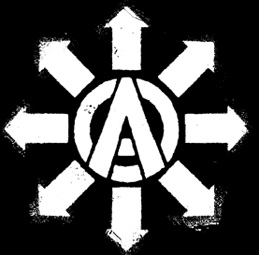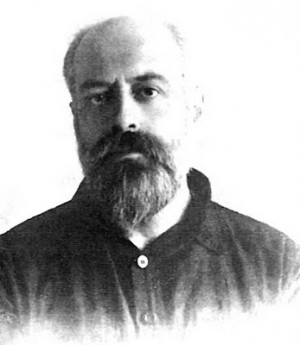
Indeed, I’m coming to think that the very use of a prefix or suffix to anarchism is a real danger sign of something amiss.
I should say first of all that I have in the past been happy to be described as an “eco-anarchist”, on the simple basis that there is strong ecological element to my personal take on anarchism.
But it increasingly seems to me that to use that term is self-defeating and I don’t think I will continue using it. It’s as if I am myself suggesting that environmental issues have no intrinsic place in the anarchist worldview and are just elements that some of us have randomly decided to tack on.
The same could be said of anarchist-communism. The use of the term implies that anarchism and communism are completely different things that have been fused together in this particular ideology.
That impression is even stranger in that context. When I’ve used the term “eco-anarchist”, it’s partly because I am aware that not all other anarchists share all my environmental views – and neither would I suggest that they should do. There are lots of varying anarchist viewpoints –and this, as I have said before, is anarchism’s greatest strength.
However, some anarchist-communists claim that their kind of anarchism is in fact the only valid kind and adopt a negative attitude towards other strands of anarchist thought.
This is, in my view, a dangerous and destructive approach not worthy of the anarchist tradition. Class struggle is part of anarchism, but not the whole of it.
In this respect, I am in complete agreement with Voline and the other Russian anarchists who replied to the original Platformists in 1927 with a statement that insisted: “To maintain that anarchism is only a theory of classes is to limit it to a single viewpoint. Anarchism is more complex and pluralistic, like life itself. Its class element is above all its means of fighting for liberation; its humanitarian character is its ethical aspect, the foundation of society; its individualism is the goal of mankind.”
 |
| Volin |
It seems especially odd, if you believe that anarchism is necessarily communist, to continue to couple the two terms together in hyphenated form – unless, that is, you primarily see yourself as a communist who’s refining that definition with the use of “anarchist” as a merely secondary label. In that case, who are you to tell other people what anarchism is or isn’t?
There are other problems of a very different kind involved with adjectives affixed to anarchism.
For instance, the very mention of the term “anarcho-capitalism” makes my blood boil. It just doesn’t exist, whatever its handful of proponents say. Anarchism is all about the destruction of wealth, property, privilege and the state which is always necessary to protect and impose them by force. Capitalism is the opposite of that. End of story. We really don’t need to discuss this.
The same applies to so-called “national-anarchism”. This is so obvious, I wouldn’t have even bothered pointing it out, if it hadn’t been for the fact that some of my stuff has been reposted on one of their sites, along with other anarchist material.
Anarchism is internationalist, universal, anti-racist. It specifically calls for the liberation of human beings from labels imposed on them from above, for the abolition of all nation-states, all borders. You just can’t take all that away and still call it anarchism.
It is pretty clear from a brief look at the “national-anarchist” material, with its promotion of racial separatism, that this is a rather transparent extreme-right attempt to pass for something else.
Of course, the proponents of this non-existent ideology try to counter objections by denying that it is an oxymoron of the most obvious kind and claiming that their idea of “nation” is different from the one generally referred to, that their idea of preserving races is just about bottom-up cultural diversity and so on.
If you accepted this at face value (which I don’t recommend!), it still leaves us with a question. Why, if “national-anarchists” really think they belong in the historic anarchist tradition, do they insist in distancing themselves from it by using the adjective “national” which, unlike “communist” or “eco”, doesn’t belong within the fold of anarchist thinking, or even just outside of it, but right over the horizon in a dark place no real anarchist would go anywhere near?
Why don’t they just ditch the absurd label, get involved in the anarchist movement and express their views (which are supposedly compatible with anarchism) in the usual ways?
The answer is easy, of course: it’s because they, like the capitalists, aren’t really anarchists at all.
As far as genuine comrades are concerned, maybe a good way of setting ourselves apart from imposters is to ditch all the obfuscating qualifications and say plainly that we are proud to be nothing but anarchists. Sin adjetivos.
You are right. But all these, are based in a truly rational sense of reality. Unfortunately today, many concepts are distorted in such a degree, that rationality in became almost irrational! Maggie’s ghost: what is haunting Europe http://failedevolution.blogspot.gr/2013/07/maggies-ghost-what-is-haunting-europe.html